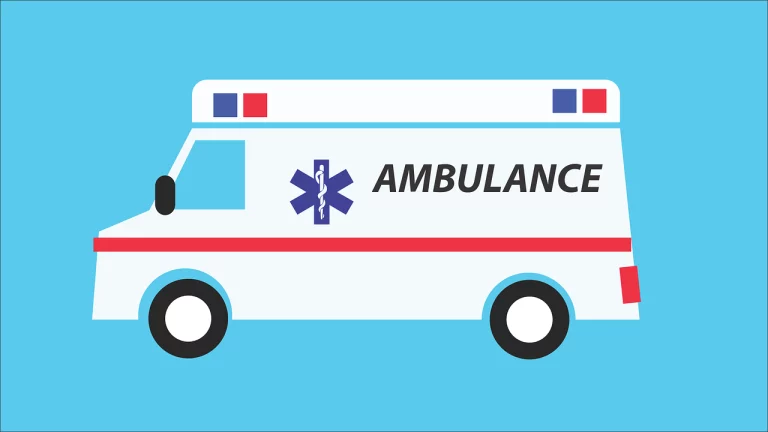Book Appointment Now

Critical Thinking and Evidence-Based Practice in Nursing
Critical Thinking and Evidence-Based Practice in Nursing are intertwined concepts that form the foundation of high-quality care in modern healthcare systems. Critical thinking involves analyzing, synthesizing, and evaluating information to make informed decisions, while evidence-based practice (EBP) applies research findings to guide clinical care. Together, they empower nurses to address complex healthcare challenges effectively, ensuring patient safety and improving outcomes. By fostering critical thinking, EBP enables nurses to navigate the dynamic nature of healthcare and deliver interventions that are both scientifically validated and tailored to patient needs.
Get a custom paper help about clinical thinking and EBP in nursing
Order Custom Nursing Paper
The Role of Critical Thinking in Nursing
Critical thinking is essential in nursing as it underpins every clinical decision. It involves the ability to interpret data, assess patient needs, and evaluate the risks and benefits of potential interventions. Unlike rote memorization or mechanical application of guidelines, critical thinking requires nurses to adapt their knowledge to specific situations. For example, a nurse caring for a patient with atypical symptoms must use critical thinking to recognize patterns that deviate from standard presentations, leading to accurate diagnoses and timely interventions (Benner et al., 2010).
Moreover, critical thinking fosters problem-solving and decision-making skills. Nurses frequently encounter situations that require quick judgment, such as managing a patient experiencing sudden respiratory distress. In such cases, the nurse must integrate observations, medical history, and clinical knowledge to make decisions that prioritize patient safety. This process relies on the ability to differentiate between urgent and non-urgent factors, highlighting the importance of analytical skills in nursing practice (Facione & Facione, 2013).
Critical thinking also involves reflection, enabling nurses to evaluate the effectiveness of their actions and learn from past experiences. Reflective practice ensures continuous improvement and professional growth, allowing nurses to refine their clinical judgment over time. For instance, after managing a patient with complex wound care needs, a nurse might analyze the outcome to identify areas for improvement, ensuring better care in similar future scenarios.
The Relationship Between Critical Thinking and Evidence-Based Practice
Evidence-Based Practice (EBP) depends on the application of critical thinking to integrate research evidence, clinical expertise, and patient preferences into care decisions. Without critical thinking, EBP would be a mechanical process, failing to account for the nuances of individual patient needs and contexts. Nurses must critically evaluate research findings to determine their relevance, reliability, and applicability to specific clinical situations (Melnyk & Fineout-Overholt, 2019).
For example, a nurse reviewing evidence on pressure ulcer prevention might encounter conflicting studies about the effectiveness of foam mattresses versus air-filled mattresses. Critical thinking enables the nurse to assess the methodology of these studies, compare patient populations, and consider the resources available in their healthcare setting before selecting the most appropriate intervention.
Furthermore, critical thinking ensures that EBP is implemented ethically and effectively. It helps nurses recognize potential biases in research, such as conflicts of interest or incomplete data reporting, preventing the use of flawed evidence. Additionally, critical thinking guides the adaptation of evidence to patient-specific circumstances, such as modifying pain management protocols for patients with a history of opioid addiction. This individualized approach aligns with the ethical principle of patient-centered care, emphasizing respect for autonomy and shared decision-making (Beauchamp & Childress, 2019).
Critical Thinking in EBP Implementation
The successful implementation of EBP relies on critical thinking at multiple stages, including evidence appraisal, application, and evaluation.
Appraising Evidence: Nurses must critically assess research findings to ensure they are based on robust methodologies and relevant to their practice. Tools like the Critical Appraisal Skills Programme (CASP) framework assist nurses in evaluating study validity, results, and applicability. For instance, when reviewing a randomized controlled trial on infection control measures, a nurse might examine sample size, blinding procedures, and statistical analyses to determine the strength of the evidence (Melnyk & Fineout-Overholt, 2019).
Applying Evidence: Critical thinking helps nurses tailor evidence to individual patients and clinical settings. While guidelines provide general recommendations, not all interventions suit every patient. For example, evidence might support early mobilization for ICU patients, but a nurse must assess whether a specific patient’s condition, such as hemodynamic instability, allows safe implementation. This step requires balancing evidence with clinical judgment and patient-specific factors (Benner et al., 2010).
Evaluating Outcomes: After implementing an evidence-based intervention, nurses use critical thinking to analyze its effectiveness and identify areas for improvement. This process involves collecting and interpreting data, such as changes in patient symptoms or recovery times, to determine whether the intervention achieved its intended outcomes. Critical thinking ensures that nurses remain accountable for their actions and continue refining their practice based on evidence and experience (Facione & Facione, 2013).
Challenges in Integrating Critical Thinking and EBP
Despite their importance, integrating critical thinking and EBP into nursing practice faces several challenges.
Time Constraints: Nurses often work in fast-paced environments, leaving little time to critically evaluate evidence or reflect on decisions. This challenge underscores the need for healthcare organizations to support EBP through resources like decision-support tools and protected time for professional development (Melnyk & Fineout-Overholt, 2019).
Knowledge Gaps: Some nurses may lack the training or confidence needed to critically appraise research. Addressing this issue requires education programs that emphasize critical thinking skills, evidence appraisal techniques, and the practical application of research findings. Simulation-based learning can provide nurses with opportunities to practice these skills in realistic scenarios (Facione & Facione, 2013).
Resistance to Change: Implementing evidence-based practices often requires shifting away from traditional methods, which can meet resistance from staff accustomed to established routines. Critical thinking helps nurses navigate these challenges by evaluating the benefits of change and advocating for evidence-based improvements (Benner et al., 2010).
Conclusion
Critical Thinking and Evidence-Based Practice in Nursing are essential for delivering safe, effective, and patient-centered care. Critical thinking enables nurses to analyze complex clinical situations, appraise research evidence, and adapt interventions to meet individual patient needs. By fostering problem-solving, ethical decision-making, and reflective practice, critical thinking ensures that EBP is implemented thoughtfully and effectively. Despite challenges such as time constraints and resistance to change, education and organizational support can empower nurses to integrate critical thinking and EBP into their practice. Together, these concepts enhance the quality of care and promote continuous improvement in nursing, benefiting patients and healthcare systems alike.
References
- Beauchamp, T. L., & Childress, J. F. (2019). Principles of biomedical ethics (8th ed.). Oxford University Press.
- Benner, P., et al. (2010). Educating nurses: A call for radical transformation. Jossey-Bass.
- Facione, P. A., & Facione, N. C. (2013). Critical thinking and clinical reasoning in nursing. Insight Assessment.
- Melnyk, B. M., & Fineout-Overholt, E. (2019). Evidence-based practice in nursing & healthcare: A guide to best practice (4th ed.). Wolters Kluwer.







